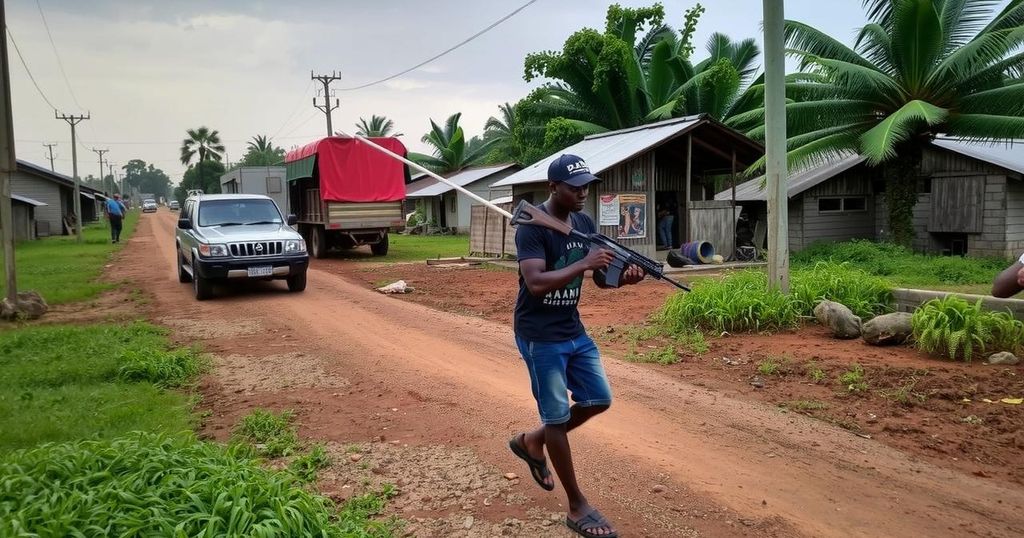The Congolese military has reported the retaking of several towns from armed groups in eastern Congo, amidst ongoing fighting and rebel advances. Over 7 million people remain displaced in the region, raising concerns about the humanitarian crisis. The M23 rebel group poses a significant threat, complicating the military’s efforts to stabilize the area as aid becomes increasingly difficult to deliver.
In a recent statement from Goma, Congo’s military confirmed the recapture of several towns previously held by armed groups in the eastern regions of North Kivu and South Kivu. Despite these victories, rebel advances were reported in other areas, exacerbating the ongoing conflict. The situation remains dire as the region, plagued by over 100 armed factions, continues to face an entrenched humanitarian crisis with millions displaced, underscoring the complexity of the conflict.
The Congolese army has successfully regained control of towns such as Ngungu, which had been occupied by rebels for several months. Notably, Ngungu is situated near Goma, the provincial capital of North Kivu. Significant villages, including Lumbishi and Kabingo, were among those listed as recovered by the Congolese forces, while many other locations remain under rebel influence. The army attributed its success to a collaborative military operation among provincial commanders, indicating a strategic effort to regain lost territory.
Though some residents express relief over the recent military recoveries, concerns about ongoing security conditions persist. Reports of continued violence and fatalities within these areas emphasize the precarious situation of returning populations. One resident lamented, “We continue to suffer because the security is not well established. People continue to die.” Consequently, many villages remain cut off from vital aid as clashes persist, further complicating the humanitarian efforts in the region.
The M23 rebel group has emerged as a significant threat in Eastern Congo, with allegations of support from Rwanda, which has been denied by Rwandan authorities. The humanitarian crisis is worsened by the increasing number of displaced persons seeking refuge, leading to overburdened camps and inadequate aid resources. Romain Briey, a coordinator at Doctors Without Borders in Masisi, elaborated on the challenges faced by humanitarian responders, stating, “The severe lack of humanitarian responders in the area is making things difficult.”
The conflict in Eastern Congo highlights the ongoing struggles involving territorial disputes, humanitarian disasters, and international dynamics. As the Congolese army battles to reclaim territories, the plight of millions of displaced individuals continues to call for urgent attention and action from both national and international communities.
The eastern regions of Congo, particularly North Kivu and South Kivu, have been embroiled in conflict for decades, with an array of armed groups competing for territorial control. This area, rich in valuable minerals, has witnessed perpetual violence, creating one of the largest humanitarian crises globally. Over 7 million individuals remain displaced due to ongoing hostilities, complicating the efforts of humanitarian agencies involved in relief activities. The M23 rebel group plays a pivotal role in this context, further straining the efforts to establish stability and security in the region.
In conclusion, while the Congolese army has made strides in recapturing towns from rebel forces, the persistent challenges of ongoing violence and humanitarian needs remain critical. The complex dynamics of conflict and humanitarian response in Eastern Congo necessitate sustained attention from both local authorities and international observers. The situation calls for urgent support to address the dire conditions faced by the displaced populations and to facilitate the restoration of peace in the region.
Original Source: apnews.com






